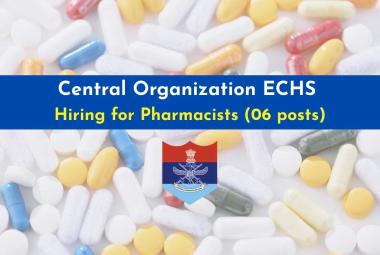{ DOWNLOAD AS PDF }
 About Author
About Author
Vishwas B. Chavan
Consultant, Sunflower laboratory and diagnostic Center and Clinical Diagnostic Center
Mumbai, Maharashtra.
vishwaschavan2003@yahoo.co.in
Cancer incidence is increasing worldwide [1]. It can affect any part of the body, showing symptoms often in late stages. Diagnosis of cancer has a huge impact on patient and his/her family. Cancer treatments are costly and toxic, many times giving rise to secondary cancers. Even after successful treatment, risk of recurrence of cancer is significant sometimes.
[adsense:336x280:8701650588]
REFERENCE ID: PHARMATUTOR-ART-2321
|
PharmaTutor (ISSN: 2347 - 7881) Volume 3, Issue 3 How to cite this article: VB Chavan; Wonders of Immune System: Spontaneous Regression of Cancers; PharmaTutor; 2015; 3(3); 7-10 |
However, cancer is not always progressive. It was observed that when an invasive breast cancer is detected in screening, sometimes it regresses spontaneously [2]. There are many tumor-suppressor genes, which prevents a cell from becoming cancerous. There are also some proteins, known as metastasis suppressors, which inhibits metastasis (spread of cancer). This suggests that human immune system can combat cancer and sometimes, can eradicate it completely.
Cancer and immune system
Cancer and immune system is linked to each other. In AIDS patients, where immune system fails, incidences of cancers are more. Animal studies have conclusively proved that the immune system can recognize and eliminate malignant tumors. This effect is mediated by cytotoxic T lymphocytes, natural killer cells, macrophages etc.
Immune system keeps check on cancer cells by two mechanisms: Cancer immunosurveillance and immunoediting.
Cancer immunosurveillance: It is an important host protection process that decreases cancer rates through inhibition of carcinogenesis. In this process, lymphocytes have a central role in recognizing and eliminating continuously arising pre-cancerous cells.
[adsense:468x15:2204050025]
Immunoediting: It is a process by which a person is protected from cancer growth and the development of tumor immunogenicity by their immune system. This process contains many steps:
1. Recognition of growing tumor, which is causing local damage.
2. Induction of inflammatory signals for natural killer cells, macrophages etc.
3. Stimulation of infiltrating lymphocytes to produce IFN-gamma.
4. IFN-gamma induces tumor death and production of chemokines (which block the formation of new blood vessels for tumors).
5. Ingestion of tumor cell debris by dendritic cells.
6. Production of IFN-gamma and IL-2 by immune cells (natural killer cells and macrophages) and killing more tumor cells.
7. Tumor-specific T cells move to the tumor site and the cytolytic T lymphocytes then destroy the remaining antigen-bearing tumor cells at the site.
However, some tumor cells escape these processes and lead to formation of tumor. Further, cells within a growing tumor acquire hundreds of mutations, which lead to the production of potentially antigenic molecules. These tumor antigens are highly variable among different patients. This profound variability in tumor antigens between patients is one reason why vaccines against cancer are not very promising. Due to some mutations, tumor cells escaped from detection and destruction by immune system. E.g. some tumors can cause decrease in expression of class I MHC antigens, so that they should not be recognized by T cells of immune system [3]. However, in many cases, it was observed that tumors are antigenic and recognized by tumor-specific T cells.
Relationship between infections and cancer regressions
Epidemiological studies indicate that activation of immune system (by certain infections and vaccinations) may prevent development of cancer or even have curative effect on established cancers. After infections, sometimes many favorable effects are seen, such as spontaneous tumor regression and improved survival rate. These effects are so powerful that in some patients, they lead to complete eradication of established tumors.
Concept of tumor regression after infection is not new. In 1868, scientists made an observation by chance that cancer patients with a feverish infection sometimes underwent regressions. Particularly, infection with Streptococcus pyogenes causes an exceptionally vigorous immune attack. Professor Busch in 1868 introduced the infection of cancer patients by purpose as a novel strategy to treat cancer. He achieved a dramatic regression with his first patient using live Streptococcus pyogenes bacteria. Beginning in 1891, this strategy was exploited by Coley, who systematically applied Streptococcus pyogenes extracts to cancer patients and achieved a remarkable rate of regressions. Using this technique, Coley and coworkers showed that 80% patients with inoperable sarcoma of soft tissue can be survived more than 5 years. In 1929, an unexpectedly low risk of cancer was observed in tuberculosis patients [4]. This lead to the therapeutic use of BCG (Bacille Calmette-Guerin) vaccine in colon cancer and melanoma patients, with limited success. In superficial bladder carcinoma patients, use of BCG plus surgery has recurrence rate of 50 %, while surgery alone has recurrence rate of 94 %, after 10 years of treatment [5]. Another study, which found 26 spontaneous remissions of childhood leukemia, 21/26 (80%) cases were accompanied by infection [6].
Effect of fever on cancer: A large fraction of spontaneous regressions and remissions described in the literature was preceded by a feverish infection [7], although, observations suggest that infections without fever too have beneficial therapeutic effect on cancer. However, it is possible that such beneficial effects might be increased by fever. These fever periods are usually short (6 - 10 hours) and safe when monitored carefully.
Often cancer cells are more susceptible to heat than normal cells and die from necrosis. Cellular debris from these cells can supply tumor antigens, which can elicit appropriate immune response. This suggest that fever liberates more antigens from tumors, generating multiple immune-stimulating effects.
Hyperthermia also increases the number of tumor-infiltrating lymphocytes. Additionally, when cells die by necrosis, many heat-shock proteins are released into the extra-cellular compartment, where they can induce production of cytokines and chemokines. Thus fever damages tumor cells and make them susceptible to immune attack. It was also suggested that bacterial infections, particularly which induces fever, establish an inflammatory environment required for an effective immune attack on tumors.
Therapeutic possibilities of immune system stimulation
Scientists are now arguing that the current primary cancer management procedures neither harness the benefits of patients’ own immune system nor stimulate it to achieve tumor regression but actively suppress it. Thus it does not supplement body's own defensive mechanisms but opposes them. According to some scientists, an ideal cancer management should involve the stimulation of the immune system to fight cancer. Acute infections are beneficial in the prevention and regression of tumors. Childhood feverish infections can prevent cancer in adulthood. Acute infections, particularly those with fever, stimulates the immune system and induce regression of cancer even in the most advanced stage of disease and prove that cancer is not an irreversible process without a cure [8].
Immune system stimulation can be used in following scenarios:
1. In slowly progressing cancers, such as prostate cancer, before considering more aggressive treatments.
2. In cancers with very poor prognosis where conventional treatments are of little use (pancreatic cancer, liver cancer, unresectable and metastatic melanoma etc.)
Scientists are suggesting that immune-compromising effects of chemotherapy or radiotherapy might interfere with immunotherapy. Therefore, it should be considered as monotherapy or together with other immunity-enhancing therapies like cytokine or antibody therapy [9]. However, large randomized clinical trials should be conducted before regular clinical use of immune stimulation therapy becomes common.
Recent developments: Vaxil Biotheraputics, an Israeli biotechnology company has developed ImMucin, a prophylactic cancer vaccine that can trigger a response in about 90 percent of all types of cancer. The company is trying to harness the natural power of the immune system to fight against cancer by seeking out cancer cells and destroying them. ImMucin is intended to stimulate the patient's own immune system to control cancer by reacting to the natural corresponding MUC1 antigen as expressed on the surface of cancer cells. ImMucin stimulates a part of the immune system and guides it to attack cells with markers that indicate the presence of cancer. ImMucin is a small and defined domain expressed only on tumor cells and not in the blood stream. Extensive preclinical studies have demonstrated that the vaccine is highly effective in inducing a robust and broad T cell immunity against MUC1 expressing tumors in various in-vitro assays [10].
Meanwhile, cancer patients should know that diagnosis of cancer is not certain death. Power of combating cancer is within our body only. Nature has given this gift of immune power to all of us and should harness it to combat cancer by adapting healthy lifestyle. This includes eating healthy food like fruits and vegetables, stopping use of tobacco and alcohol, remaining stress-free and thinking positively. Then only our immune system will be strong enough to defeat cancer.
REFERENCES
1. en.wikipedia.org/wiki/Cancer_immunology
2. Zahl PH et al. The natural history of invasive breast cancers detected by screening mammography. Arch Intern Med. 2008 Nov 24; 168(21): 2311-2316.
3. Fauci et al. (eds): Harrison’s principles of internal medicine, McGraw-Hill Companies Inc. (USA), 1998.
4. Pearl R. Cancer and tuberculosis. Am. J. Hyg. 1929; 9: 97 – 162.
5. Patard Jet al. Tumor progression and survival in patients with T1G3 bladder tumors: multicentric retrospective study comparing 94 patients treated during 17 years. Urology. 2001 Oct; 58(4): 551-556.
6. Diamond L, Luhby L. Pattern of ‘spontaneous' remissions in leukemia of the childhood, observed in 26 of 300 cases. Am J Med. 1951; 10:238.
7. U Hobohm. Fever therapy revisited. Br J Cancer. Feb 14, 2005; 92(3): 421–425.
8. Thomas Jessy. Immunity over inability: The spontaneous regression of cancer. J Nat Sci Biol Med. 2011 Jan-Jun; 2(1): 43–49.
9. U Hobohm et al. Pathogen-Associated Molecular Pattern in Cancer Immunotherapy. Critical Reviews in Immunology 2008; 28(2): 95 – 107.
10. labroots.com/user/daily-news/article/id/291/title/vaxil-vaccine-immunotherapy-helps-immune-system-to-repel- (accessed on 10th January 2015)
NOW YOU CAN ALSO PUBLISH YOUR ARTICLE ONLINE.
SUBMIT YOUR ARTICLE/PROJECT AT editor-in-chief@pharmatutor.org
Subscribe to Pharmatutor Alerts by Email
FIND OUT MORE ARTICLES AT OUR DATABASE









